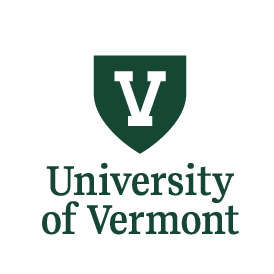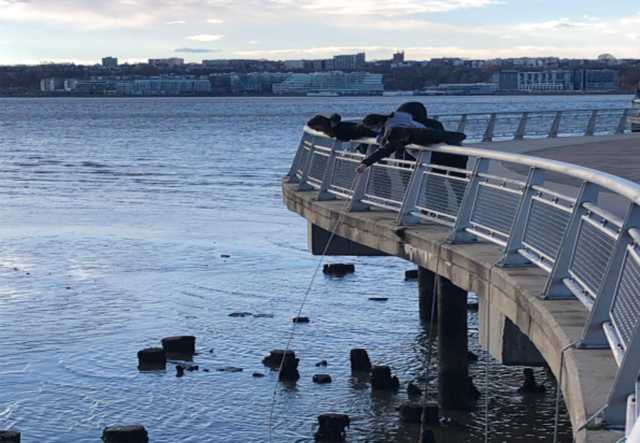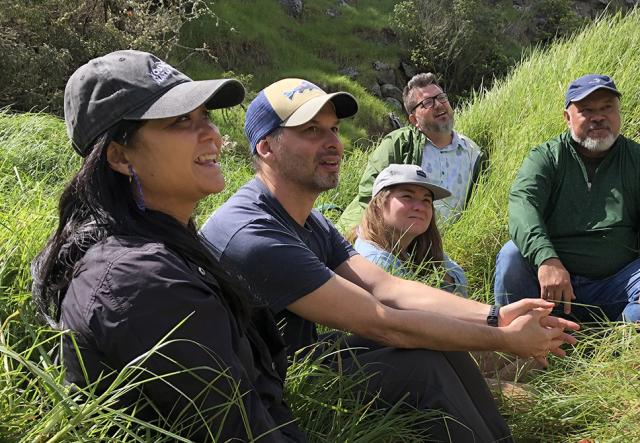Leading in Schools, With Lessons from the Land
A snapshot of our 2022–23 Leadership Academy
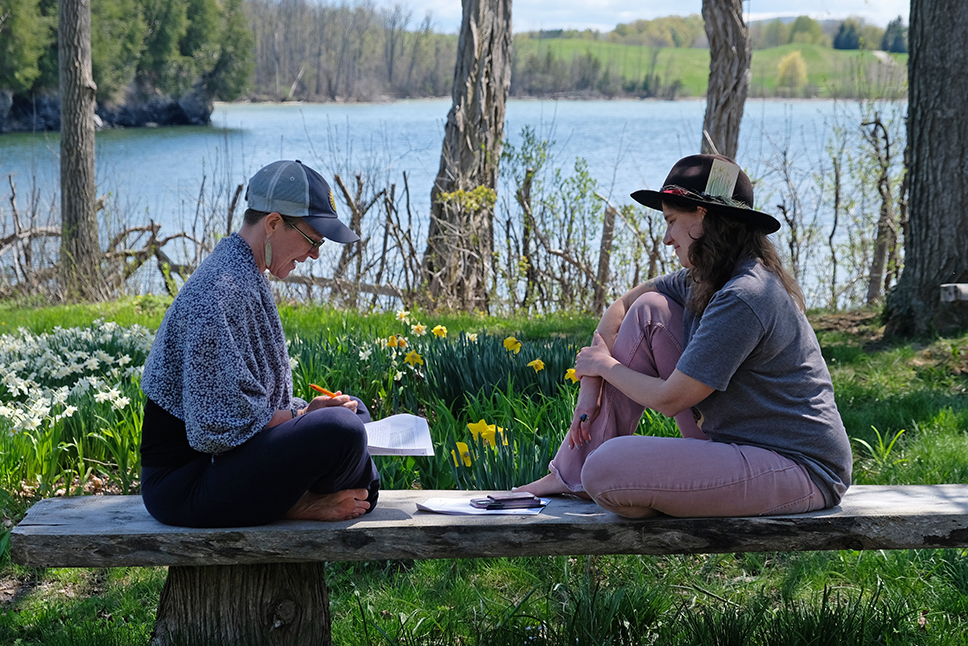
For anyone who’s been to Shelburne Farms, you know how inspiring the landscape can be, from rolling green pastures in spring to the way the light filters through the maple trees’ yellow leaves in fall. Observing transformation through the seasons is at the heart of our year-long Education for Sustainability (EFS) Leadership Academy. During each of the program’s four retreats, educators draw parallels between what they see in nature and what they notice in their teaching practice and institutions. “We’re connecting the concept of adaptation in the natural world to leadership practice, noting what’s changing and adapting in our work, and what we may need to do differently,” explains Jen Cirillo, Shelburne Farms Institute for Sustainable Schools director of professional learning. “Systems change has to also involve us–we have to change.”
“A huge part of this experience for me was reconnecting to the land,” says participant Jackie Kolb, a program specialist with the Smithsonian Science Education Center in Washington, D.C. “Returning to this place to learn and noticing the changes at the farm throughout the year really created a sense of home and homecoming. It reinforced the importance of learning to focus on the land and that inclusion of the land has to be part of sustainability work.”
Each Leadership Academy participant is, in their own way, trying to make a positive impact on the education system, and arrives with their own goals. Educators are challenged to develop action plans–a big-picture look at the change they’d like to make in their school, community, or beyond–and then develop projects to advance that change. This year included many different kinds of educators–like an independent environmental educator, a curriculum writer, a food systems graduate student, and library media specialists–whose projects ranged from producing a podcast to share education for sustainability best practices with fellow teachers; creating a rubric for schools to evaluate how their administrators contribute to a culture of sustainability; to integrating environmental literacy into Connecticut’s state social studies standards.
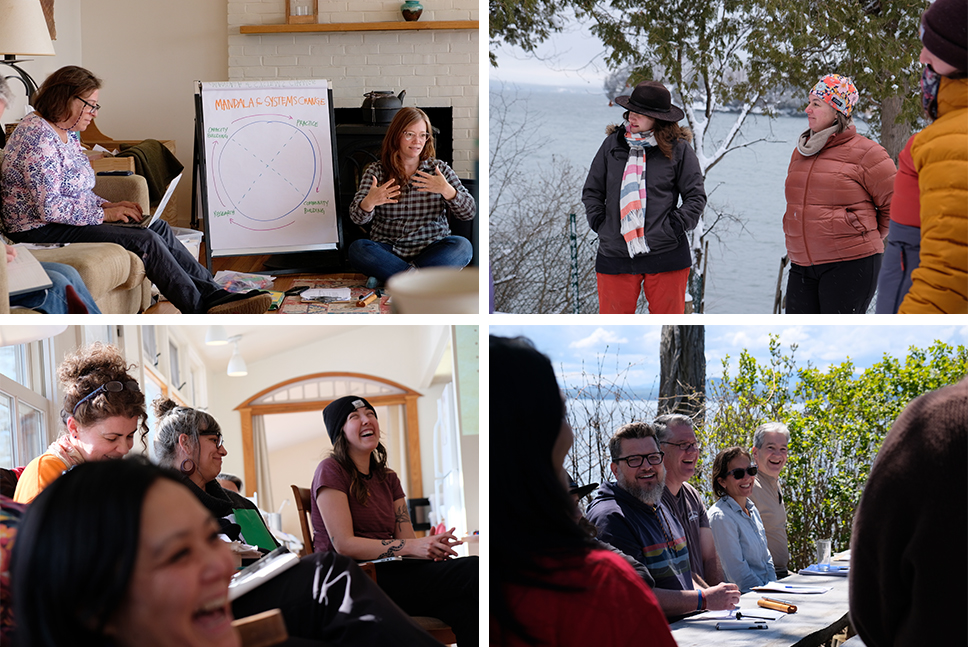
In residential retreats over the course of the year, participants offer each other support and feedback on ongoing projects; dig into current research for thought-provoking discussions; and dive into systems thinking, led by faculty Jen Cirillo and Aimee Østensen of Shelburne Farms Institute for Sustainable Schools plus Emily Hoyler and Simon Jorgenson of the University of Vermont and guest speakers. “A lot of what we read and did made us think about things in relationship to each other, the dynamics in relationships, and how we use and infuse care and love into those relationships as a way to make change. That’s what the program meant for me,” says Jackie.
A School on a Mission
The three-person team from Sustainability Academy, a public magnet elementary school in Burlington, Vermont, came to the program with a big guiding question: How can we better align the day-to-day student experience with the school’s sustainability mission? The program offered a shared vocabulary of systems thinking and a place for these teammates to plan, each of whom brought a different perspective: Julia Marchessault as fourth-grade classroom teacher, Nina Oropeza as school principal, and Kestrel Plump as the school’s education for sustainability coach. “Creating lasting change in public schools is really hard work. I wanted the support of the Leadership Academy to be able to meet people outside of that context who can help me have those thirty or sixty-thousand foot discussions,” says Kestrel.
Leadership Academy offers educators a community that nurtures them as leaders so that they can go on to spark systemic change in schools. “When you’re in the classroom, it’s easy to feel siloed, like you’re on your own. Education for sustainability has helped me to see how the whole school fits together, how what happens in Pre-K through third grade shows up in my fourth-grade classroom,” says Julia. “EFS has helped me to see my role as bigger than just in my classroom, and how to affect change from within the education system. Now I see myself as a leader.”
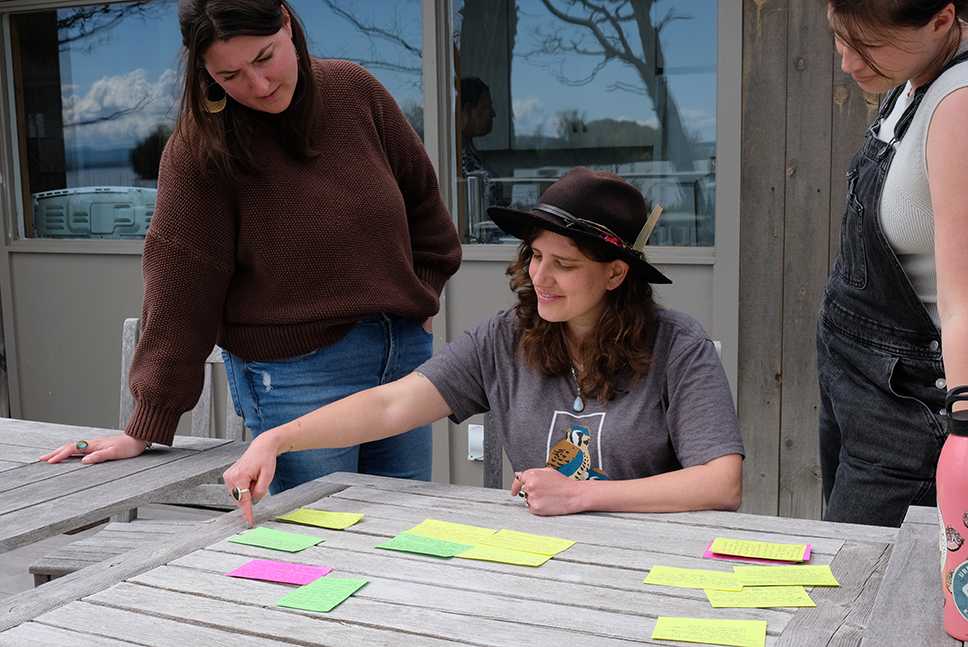
Throughout the program, the Sustainability Academy team wrestled with discussions like, what does education for sustainability mean to our community? How can we work with regimented school schedules or leverage outdoor learning spaces to support learning toward sustainability? “In a public school, you have to be creative and, sometimes, a little subversive. What are those levers you can pull, those moments of opportunity that you can sneak in?” says Kestrel.
With an energized and shared sense of purpose as a team, more initiatives and integrations are taking root at the Sustainability Academy. In the coming school year, Kestrel will collaborate with classroom teachers in each grade to incorporate sustainability into curricula–for example, connecting learning about animal adaptations with a fourth-grade literacy unit. Plans are also unfolding for seasonal school-wide events that connect students to the land every year, like a Maple Fest in winter and a school garden work day in spring. And, in the case of shifting the school culture, every potential new hire is specifically asked about their sustainability values. “We’re looking for an understanding of sustainability that goes beyond compost and recycling, about a commitment to being a co-collaborator,” explains Kestrel.
The complex work these educators are engaged in never truly ends, but from here, Leadership Academy participants will go on to plant seeds of transformation in their own communities up and down the east coast. Shares Kestrel: “A parent told me their kindergartener brought them out to our school garden to pull carrots. Then, the student said ‘thank you’ to the plant–in sign language. That’s what we’re trying to instill in students, that you’re in relationship with this space and this place. I want school to feel less like a bureaucratic institution and more of a place of caring and wonder and joy.”
Thank you and congratulations to all of the educators who completed the 2022–23 EFS Leadership Academy:
- Jim Clifford, Milford, CT
- Ayana Curran-Howes, Burlington, VT
- Susan Golden, Paramus, NJ
- Jody Hauser, Bellows Falls, VT
- Sheila Humphreys, Brattleboro, VT
- Jackie Kolb, Washington, D.C.
- Julia Marchessault, Burlington, VT
- Julie Norman, Burlington, VT
- Nina Oropeza, Burlington, VT
- Kestrel Plump, Burlington, VT
- Don Thomas, Brookline, MA
- Mandy Walsh, Westminster, VT

